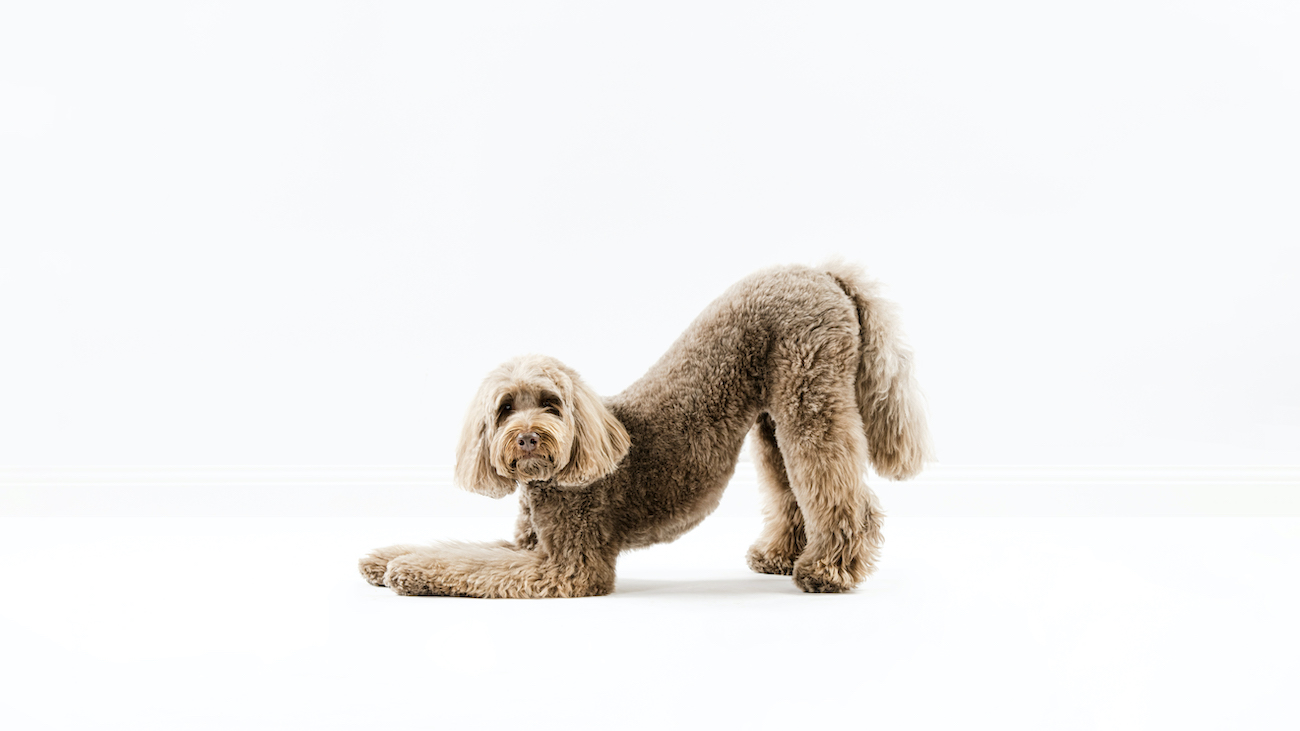Understanding Your Dog’s Coat Type
With a multitude of different breeds comes a multitude of different coat types
Depending on the source, the official number of dog breeds currently in existence is somewhere between 200 to 400.
A rather broad range, we know. Our point, however, is that there are hundreds of different dog breeds, and with so many breeds comes a lot of different coat types.
We’ve decided to iron out any confusion by explaining the most prominent coat types and giving some examples of the breeds that fit into each category. We’ve also included our recommended Houndztooth natural grooming products.
Short coat
Dogs with short coats have smooth, shiny hair that lies flat against the skin. Even though these dogs have short hair, they shed just as much as other coat types.
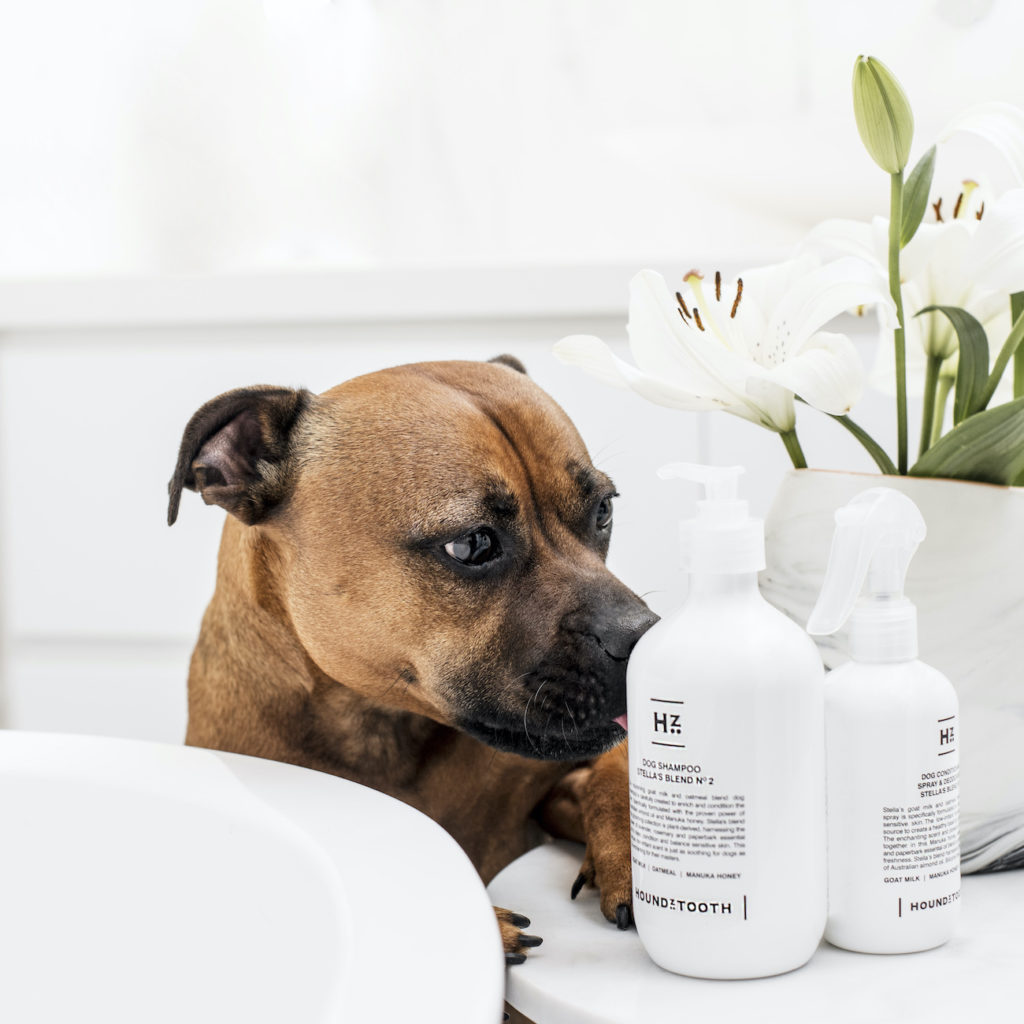
This means that brushing and washing short-coated dogs regularly will help to remove excess hair – especially if you want to limit the amount that ends up around the house.
Recommended Houndztooth products:
- Hugo’s Blend No.1 Dog Shampoo For Delicate Skin
- Hugo’s Blend No.1 Dog Coat Conditioning Spray & Deodoriser
- Stella’s Blend No.2 Dog Shampoo For Irritated Skin
- Stella’s Blend No.2 Conditioning Spray & Deodoriser
Example breeds include:
Fox Terrier, Italian Greyhound, Whippet, Rhodesian Ridgeback, Boxer, Great Dane, Bulldog, Boston Terrier, French Bulldog, Staffordshire Bull Terrier, Dalmatian, Vizsla and Short-haired Dachshund.
Long coat
Long coated dogs have hair similar to humans – it doesn’t stop growing. Long coated dogs are similar to silky coated (below) in that they need regular brushing to prevent tangles and to maintain their shine.
Recommended Houndztooth products:
- Hugo’s Blend No.1 Dog Shampoo For Delicate Skin
- Hugo’s Blend No.1 Dog Coat Conditioning Spray & Deodoriser
- Charlie’s Blend No.3 Dog Shampoo With Oatmeal
- Charlie’s Blend No.3 Conditioning Spray & Deodoriser With Oatmeal
Example breeds include:
Border Collie, Afghan Hound, Lhasa Apso, Shih Tzu, Bearded Collie, Pomeranian, Newfoundland, Cavalier King Charles Spaniel, Golden Retriever, Long-Haired Dachshund, Cocker Spaniel and Papillon.
Silky coat
Because of it’s soft, smooth and glossy properties, silky coated dogs’ hair is the envy of many. While you would think that their soft, silky waves could look after themselves, the opposite is true. Silky coated dogs need daily, gentle brushing to prevent tangles and maintain their shine.
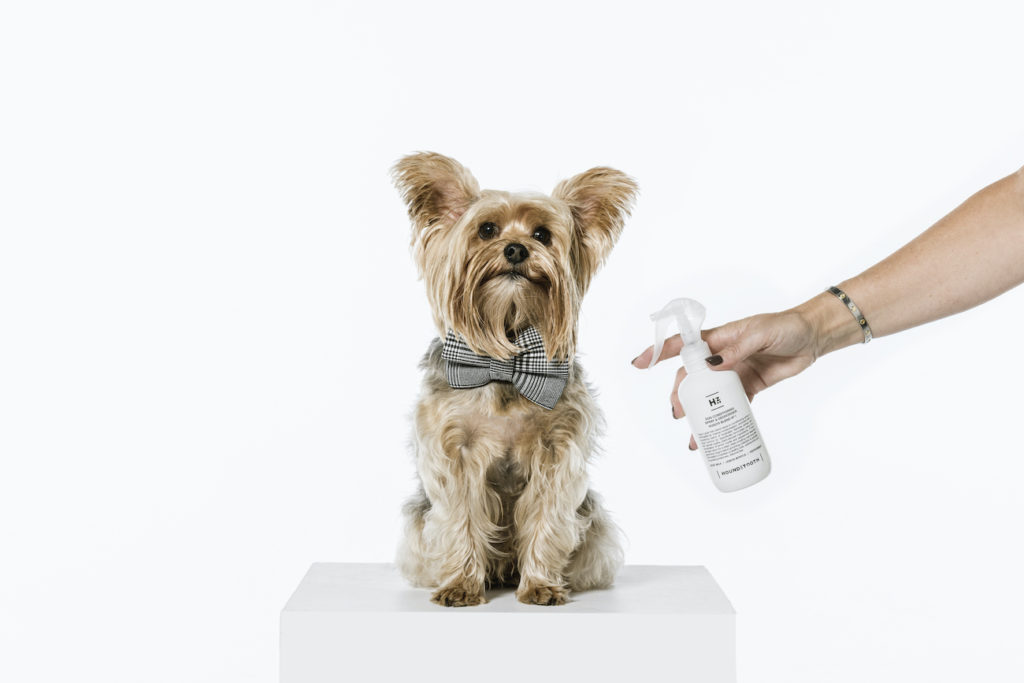
Recommended Houndztooth products:
- Hugo’s Blend No.1 Dog Shampoo For Delicate Skin
- Hugo’s Blend No.1 Dog Coat Conditioning Spray & Deodoriser
- Charlie’s Blend No.3 Dog Shampoo With Oatmeal
- Charlie’s Blend No.3 Conditioning Spray & Deodoriser With Oatmeal
Example breeds include:
Yorkie Terrier, Silky Terrier, Afghan Hound, Irish Setter, Cocker Spaniel and Maltese.
Curly coat
Dogs with curly or wavy coats are often non-shedding, which makes them the perfect pet for an allergy-sufferer. Because they are non-shedding, it is important for you to brush them regularly in order to remove dead hair and prevent knots from forming.
Curly coated dogs can suffer from dry skin as their coat keeps moisture locked out. We recommend using Charlie’s Blend No.3 Dog Shampoo With Oatmeal to keep their skin hydrated and their coat lustrous.
Recommended Houndztooth products:
- Charlie’s Blend No.3 Dog Shampoo With Oatmeal
- Charlie’s Blend No.3 Conditioning Spray & Deodoriser With Oatmeal
Example breeds include:
Poodle, Bichon Frise, American Water Spaniel, Airedale Terrier, Portuguese Water Dog and Bolognese.
Corded coat
Corded coated dogs have hair that naturally separates out into dreadlocks. With the uncanny resemblance to a mop, these dreads are only maintained for show – otherwise, they’re all tangles, everywhere.
Corded coated dogs only develop their cords upon reaching maturity. In their youth, their hair is just the same as any other dog’s. This means that brushing corded coated dogs is okay while they’re young, but must stop once their cords develop.
A corded dog’s dreads are there to stay, so any knots and tangles must be gently removed with your fingers only – taking a brush to their fur once it has already corded is a definite no-no.
Recommended Houndztooth products:
- Hugo’s Blend No.1 Dog Shampoo For Delicate Skin
- Hugo’s Blend No.1 Dog Coat Conditioning Spray & Deodoriser
Example breeds include:
Puli, Havanese, Komondor and Bergamasco.
Wire coat
Wire coated dogs actually have double coats consisting of a thick, soft undercoat and a longer, bristly and coarse wire coat. Wire coated dogs tend to shed very little – if at all – and require regular brushing to remove dead hairs and make room for new ones.
Recommended Houndztooth products:
- Hugo’s Blend No.1 Dog Shampoo For Delicate Skin
- Hugo’s Blend No.1 Dog Coat Conditioning Spray & Deodoriser
- Stella’s Blend No.2 Dog Shampoo For Irritated Skin
- Stella’s Blend No.2 Conditioning Spray & Deodoriser
Example breeds include:
Irish Wolfhound, Jack Russell Terrier, Scottish Terrier, German Wirehaired Pointer and Wire Fox Terrier.
Combination coat
A combination coat is one that is short and smooth in some places, and long and silky in others. Combination coated dogs usually have longer hair on their belly, legs, tail and ears, and shorter hair everywhere else.
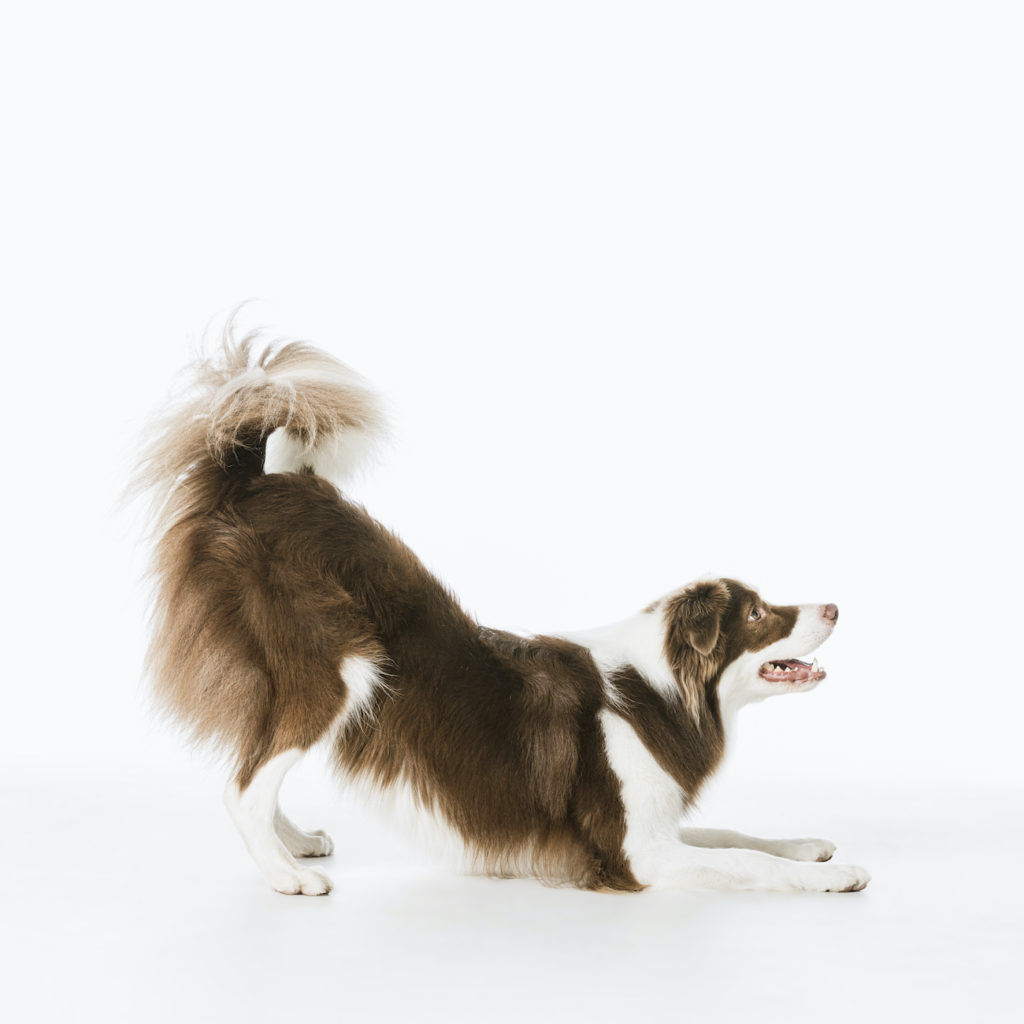
Regular grooming is needed to avoid tangles, remove dead fur and skin, and keep your pup healthy overall.
Recommended Houndztooth products:
- Hugo’s Blend No.1 Dog Shampoo For Delicate Skin
- Hugo’s Blend No.1 Dog Coat Conditioning Spray & Deodoriser
- Stella’s Blend No.2 Dog Shampoo For Irritated Skin
- Stella’s Blend No.2 Conditioning Spray & Deodoriser
Example breeds include:
Border Collie, Golden Retriever, Belgian Sheepdog, Cavalier King Charles Spaniel, Papillion, and Tibetan Spaniel.
Double coat
Double-coated dogs have a coat for two seasons – winter and summer. In a sense, that makes spring and autumn their intermediary seasons. During these months, double-coated dogs will shed either their summer or winter coats in preparation for the warmth or cold to come.
Because of their two layers of hair, double-coated dogs appear fluffier than other breeds. With a dense undercoat of short hairs and a fluffy top coat of long hairs, dogs with double coats require regular, intensive grooming.
Recommended Houndztooth products:
- Hugo’s Blend No.1 Dog Shampoo For Delicate Skin
- Hugo’s Blend No.1 Dog Coat Conditioning Spray & Deodoriser
- Stella’s Blend No.2 Dog Shampoo For Irritated Skin
- Stella’s Blend No.2 Conditioning Spray & Deodoriser
Example breeds include:
Westhighland White Terrier, Alaskan & Siberian Huskies, Samoyed, Bernese Mountain Dog, German & Australian Shepherds, Akita and Shiba Inu.
Hairless coat
Owning a dog that is entirely hairless (or very close to it!) means that you won’t have to worry about grooming or vacuuming up after them. However, hairless dogs still need much care and attention.
Without fur, hairless dogs need to wear sunscreen to protect them from sunburn. They need coats (the clothing kind) to keep them warm in cold temperatures and regular baths to keep their skin clean and free from infection.
A hairless pup will often have very sensitive skin, so it is important for you to only use products that are natural, gentle and made for skin sensitivities. We recommend using our Hugo’s Blend No.1 Dog Shampoo For Delicate Skin.
Recommended Houndztooth products:
- Hemp Shampoo For Inflamed Skin
- Hugo’s Blend No.1 Dog Shampoo For Delicate Skin
- Hugo’s Blend No.1 Dog Coat Conditioning Spray & Deodoriser
Example breeds include:
Mexican Hairless Dog, American Hairless Terrier and Chinese Crested.
Frankie & Felix’s Blend No.5
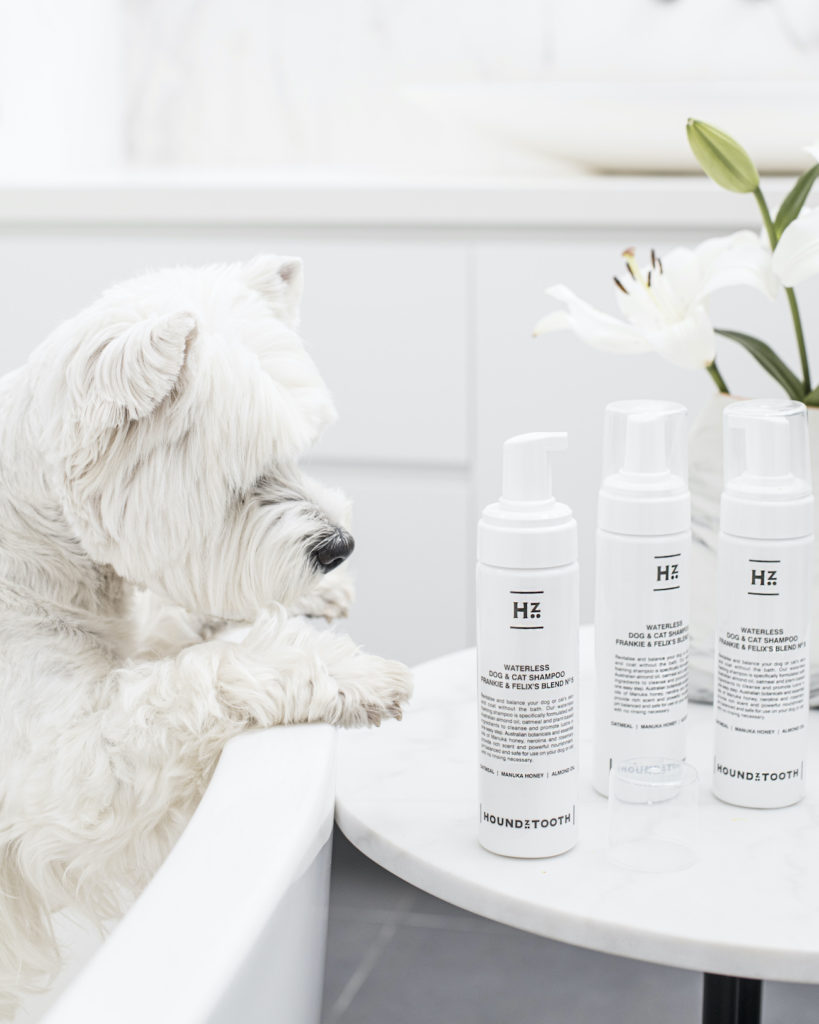
Frankie & Felix’s Blend No.5 Waterless Shampoo For Dogs & Cats With Oatmeal is suitable for any and all coat types. This waterless shampoo will save you time on baths and keep your pup clean between grooming sessions.
Whatever their coat type, Houndztooth has the perfect grooming product for your pup
Houndztooth’s natural grooming range has something for every dog. Whether yours is a hairless pup with sensitive skin or a double coat dog needing an intensive clean, we’ve got the natural dog shampoo for you.
If you are unsure about which product would best suit your pup’s coat type, feel free to reach out to the Houndztooth team for guidance.

